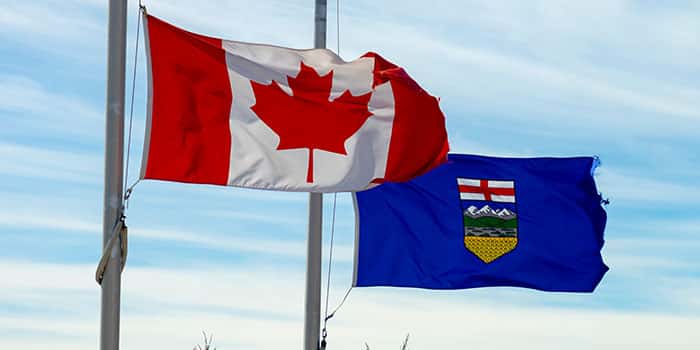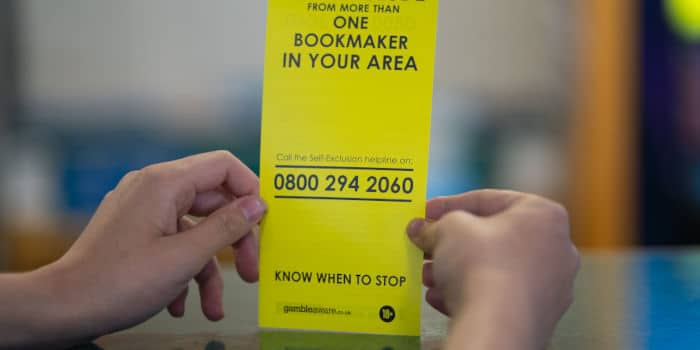- Casino
- By State
- Alabama
- Alaska
- Arizona
- Arkansas
- California
- Colorado
- Connecticut
- Delaware
- Georgia
- Florida
- Hawaii
- Idaho
- Illinois
- Indiana
- Iowa
- Kansas
- Kentucky
- Louisiana
- Maine
- Massachusetts
- Maryland
- Michigan
- Minnesota
- Mississippi
- Missouri
- Montana
- Nebraska
- Nevada
- New Hampshire
- New Jersey
- New Mexico
- New York
- North Carolina
- North Dakota
- Ohio
- Oklahoma
- Oregon
- Pennsylvania
- Rhode Island
- South Carolina
- South Dakota
- Tennessee
- Texas
- Utah
- Vermont
- Virginia
- Washington
- West Virginia
- Wisconsin
- Wyoming
- By State
- Slots
- Poker
- Sports
- Esports
Fact-checked by Stoyan Todorov
University of Alberta Course Seeks to Prepare Graduates about Oncoming Gambling Legalization
Alberta is due to launch its regulated multi-license gambling market at some point in 2025, with the Play Alberta app filling the vacuum

As anticipation builds up in the province of Alberta for Ontario-style iGaming, the University of Alberta and political science professor Fiona Nicoll have created a new research-based course that seeks to address the proliferation of commercial gambling in the province that is due to take place soon.
Educating Albertans about the Growth of Commercial Gambling
The course, developed and coordinated with the Alberta Gaming Research Institute, focuses on educating graduates about the challenges that the expansion of commercial gambling would mean for the province and its implications – whether this has to do with addiction or treatment options for people who fall into bad habits.
This course comes at a time when a global report by the Lancet Public Health Commission indicated that 450m people globally are experiencing at least one symptom of problem gambling, and as many as 80m people could be suffering from the impact of severe gambling disorder.
The course seeks to prepare professionals in different fields – and graduate students – to better understand the field. As Professor Nicoll says, more people are “potentially engaged,” which means that gambling will be playing an ever-growing part in public life.
The type of people who need to be educated include anyone from people who work with schoolchildren to journalists, she argued in an interview with the Edmonton Journal.
Unprecedented Transformations Spur Nicoll into Action
Professor Nicoll has called the oncoming changes to the regulated gambling market in Alberta, and Canada in general, “unprecedented,” meaning that people need to be aware of what is happening and how fast.
It’s even more important because the onus seems to be shifting to the players to track their own gambling habits, because of the omnipresence of gambling – which can be accessed anytime and anywhere, because of the iGaming framework that is due to roll out in the province.
In other words, players ought to be able to track their consumption, which is a radical shift from the brick-and-mortar vertical, where the establishments could have a say.
The course is also needed because the language used in the research draws on data sets and other specialized information that may require special training to be understood fully and comprehended in such a manner as to have the desired knock-on effect, argues Professor Nicoll.
iGaming is further challenging to regulate, argues the professor, as it operates at the intersection of video gaming, and this could make it further difficult to understand and appreciate the challenges and dangers the activity poses.
A good example that was not mentioned in the interview is loot boxes, which have been repeatedly criticized for their “gambling-like” mechanics, but which have not been universally deemed as gambling products, not least because an Austrian court recently sided with Electronic Arts, a video game publisher, against such claims.
Related Topics:
Although Fiona doesn't have a long-spanning background within the gambling industry, she is an incredibly skilled journalist who has built a strong interest in the constantly growing iGaming network. The team at Gambling News is glad to have her on our roster to help deliver the best stories as soon as they hit. Aside from writing, she loves to dabble in online casino games such as slots and roulette, both for her own enjoyment and also as research to better improve her understanding of the industry.
Must Read
Industry
July 8, 2025
Trump’s Gambling Tax Cap Draws Divided Opinions
More Articles




Industry
July 14, 2025
GambleAware Launches Milestone Self-Awareness App

Casino
July 14, 2025
Number of Canadian Travelers to the US Slumps Again

Industry
July 14, 2025
Senate Blocks Attempt to Reverse Gambling Tax Rule














